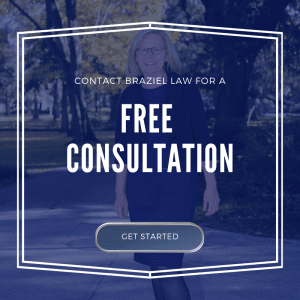That fresh beginning comes via a discharge of some of your debts. The destination to a discharged debt follows two possible routes: Chapter 7 or Chapter 13. Which path you can (or must) follow determines the length and number of steps involved in the process. Here, we explain those steps and the criteria for deciding between Chapter 7 and Chapter 13.
Chapter 7 Bankruptcy
In Chapter 7, a trustee liquidates, or sells, your non-exempt property to satisfy creditors. Chapter 7 can afford a path to eliminating debt with minimal or no loss of property. As part of the case, you can claim certain property as exempt. That is, you can protect it from the claims of unsecured (those with no collateral) creditors.
Depending on where you live, the extent of the exemptions are specified in the bankruptcy laws of your state. In some cases, Chapter 7 debtors may exempt all of their property and keep it out of the reach of unsecured creditors.
Exemptions do not protect your property from secured debts, such as a mortgage or car loan. Creditors can foreclose or repossess the collateral unless you reaffirm the debt or redeem the property. Reaffirmation means that you continue your monthly or otherwise contractual payments after the bankruptcy. If you reaffirm and later default, the creditor can repossess the collateral and sue you for any remaining debt.
To enter Chapter 7, you must pass a “Means Test.” If your gross (pre-tax) income does not exceed a certain amount (determined by your state of residence and number of people in your household), you are permitted to file Chapter 7. Should you not pass this first phase, then you enter a second phase that takes into account taxes withheld and other expenses. If your income, adjusted for these deductions, falls below a certain threshold, you can still file for Chapter 7.
Chapter 13 Bankruptcy
If you don’t pass the “Means Test” described above, you will be required to file a Chapter 13 bankruptcy. Unlike Chapter 7, a trustee does not liquidate your non-exempt assets. Instead, the Chapter 13 trustee administers a plan that lasts either three or five years, allowing you to use your disposable income toward creditors’ claims. Generally, the calculations under the “Means Test” determine your disposable income and your monthly plan payment.
In a Chapter 13, your secured creditors normally cannot repossess the collateral so long as you make payments. However, your plan must provide that the secured creditors get paid all of their claim, up to the value of the collateral. Any deficiency becomes an unsecured claim. Unsecured creditors normally get just a portion of their claims paid in a Chapter 13 plan.
If you’re behind on your mortgage payments, Chapter 13 can rescue your home from foreclosure. Under a Chapter 13 plan, the amount you are behind is repaid during the plan’s duration. Once you successfully complete Chapter 13 bankruptcy, your default is cured and your mortgage continues. Also, finishing the plan yields a discharge of most of your debts.
As in Chapter 7, you claim exemptions in Chapter 13. However, the exemptions in Chapter 13 play a role in shaping your required monthly payment. If you have more equity than you can exempt, you’ll have to pay more into the plan because — at least hypothetically — your Chapter 13 unsecured creditors have a claim to that excess equity.
Find out more about Bankruptcy in our guide: All About Bankruptcy
Learn about the ways bankruptcy can help you. Contact us for a free consultation by clicking here or calling (833) 522-1069. We’re here to help you gain the financial freedom you deserve. The Law Offices of Barbara B. Braziel proudly serves the greater Savannah, GA area.
We are a debt relief agency. We help people file for bankruptcy relief under the U.S. Bankruptcy Code.
The post What is Bankruptcy? appeared first on Braziel Law.

